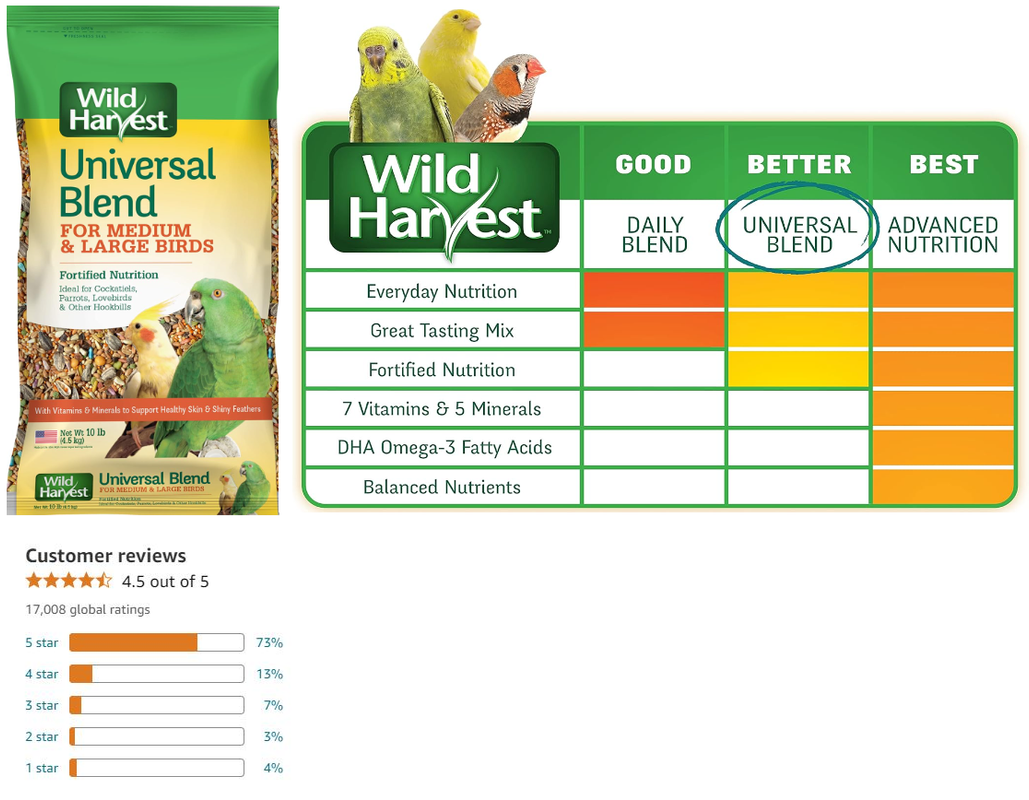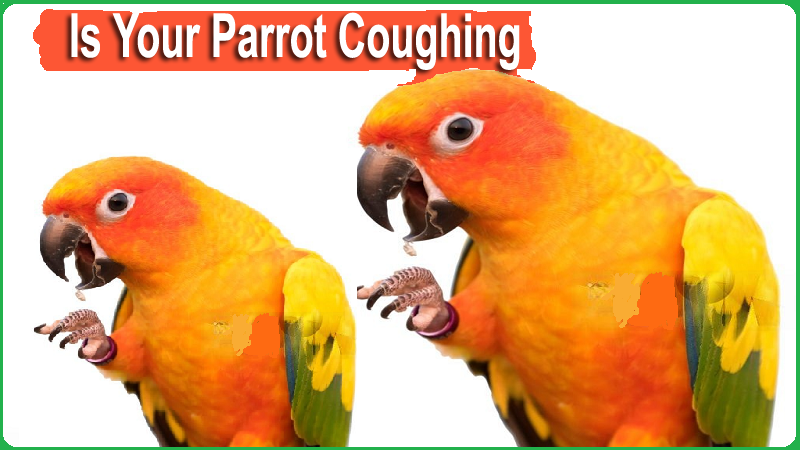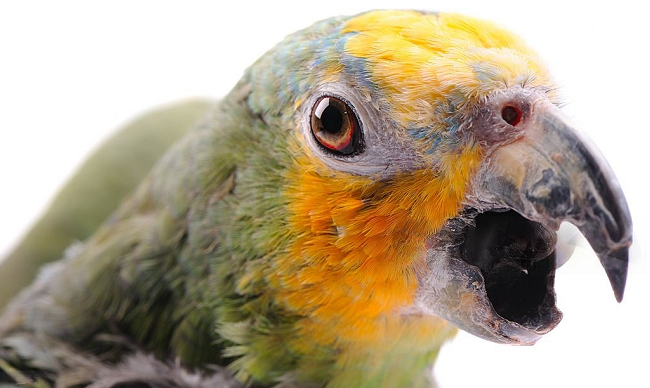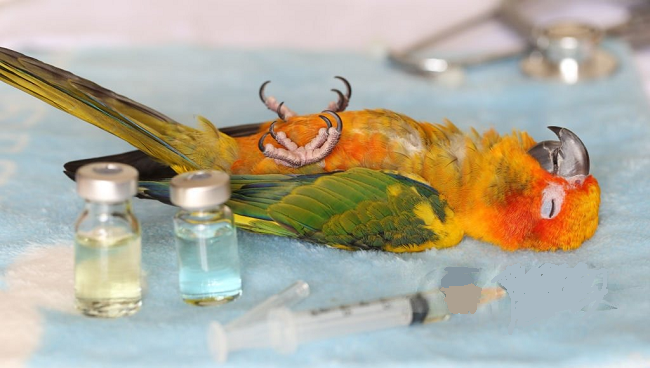Like as all other pets, parrots also have to more susceptible to various health issues. One such concern that can make considerable alarm among pet owners is parrot coughing. Although, coughing in parrots may get unusual, but it can display a range of underlying problems, from minor irritations to serious respiratory conditions.
Parrot cough is not as common like as in mammals. So, it is often mistaken for other behaviors or symptoms. Parrots are not equipped with diaphragm. Instead of this, they depend on air sacs and muscles to move air through their respiratory systems. This means that what we do interpret as coughing might actually be a range of different respiratory noises or actions.
With the help of this comprehensive guide, we will show you all the common causes of parrot coughing, symptoms, and the accurate steps to diagnose and treat the condition.
Understand Parrot Respiratory Systems before Its Cough
Before going to delve into the specifics of parrot coughing, you should know about unique respiratory system of these birds. As like all birds, parrots also have a highly efficient respiratory system. But, it is totally different from that of other mammals.
Birds are equipped with two lungs and a series of air sacs that scaled out throughout their body. Due to this system, birds can fly for extended duration without getting fatigued and allows for more efficient oxygen exchange.

But, this complicated respiratory system let’s parrots more susceptible to respiratory problems. Infections affect the lungs or air sacs that can pose coughing and other respiratory distress.
Do Parrots Cough?
Yes! Parrots can cough. Although, parrot’s cough is not sound exactly like as a human cough, but it is a common symptom of respiratory issues in them.
When your parrot get experience with respiratory distress, then it exhibit a raspy, wheezing, or clicking sound that is similar to a cough.
This coughing is sign one of the bacterial, viral, fungal infections, or allergic reactions.
What Causes of Parrots Coughing?
Coughing in parrots can get variety of causes. Here, we show you some common reasons that you should be known.
Also Read: Parrot Sneezing and its Causes, Symptoms, and Treatment
1) Respiratory Infections
Bacterial Infections
Chlamydia Psittaci: Psittacosis can lead to respiratory symptoms including coughing.
Mycoplasma spp. and Other Bacteria: Can cause respiratory tract infections.
Viral Infections
Avian Bornavirus: Associated with Proventricular Dilatation Disease (PDD) that can also impact respiratory health.
Polyomavirus: Can lead to respiratory issues among other symptoms.
Fungal Infections
Aspergillosis: Caused by Aspergillus fungus, leading to respiratory distress.
2) Environmental Factors
Air Quality: Cigarette smoke, cooking fumes, and other pollutants can irritate the respiratory system.
Humidity Levels: Low humidity can dry out the respiratory tract. So, it makes parrots more prone to coughing.
Dust and Dander: High levels of dust and dander can cause respiratory irritation.
3) Allergies
Parrots can get allergies to pollen, mold, and certain foods; can also lead to coughing and other respiratory symptoms.
4) Foreign Bodies
Ingestion of small objects can cause a parrot to cough, because it tries to clear its airways.
5) Structural Abnormalities
Some conditions such as tracheal stenosis or issues of the syrinx can result in coughing.
6) Nutritional Deficiencies
Poor diet do weak a parrot’s immune system. So, parrots easily make more susceptible to respiratory infections and issues.
7) Stress and Environmental Changes
Stress from changes in environment or routine can also impact on respiratory health.
Recognizing the Symptoms of Parrot Coughing
It is necessary to recognize the symptoms of parrot coughing at timely. Since, parrots’ respiratory systems are different from other mammals. Here are key symptoms to watch for:
Also Read: Can Parrots Get Cold? Parrots Safe Temperature
Audible Respiratory Noises: Parrots make wheezing, clicking, or crackling sounds. You can be make misunderstanding for coughing.
Nasal Discharge: Discharge from the nostrils can be clear, cloudy, or color can indicate possible infections or irritants.
Sneezing: Frequent sneezing with accompany coughing, lead to respiratory irritation or infection
Labored Breathing: Open-mouthed breathing, tail bobbing, or visible effort in breathing can indicate serious respiratory issues
Voice Changes: Changes in vocalization, such as a hoarse voice or loss of voice, can suggest issues with the syrinx (vocal organ) or respiratory tract.
Lethargy and Weakness: A parrot that is less active, appears weak, or spends more time sleeping.
Reduced Appetite: A sick parrot often eats less that can lead to weight loss and malnutrition.
Fluffed Feathers: A parrot may fluff its feathers to keep warm if it is feeling unwell. It can also accompany respiratory issues.
Tail Bobbing: Visible movement of the tail up and down with each breath is a sign of respiratory effort.
Irritated Eyes: Red, swollen, or watery eyes can indicate respiratory infection.
Parrot Cough Treatment and Diagnose
Here, we will spread light on diagnosing and treating parrot coughing:
Diagnosing Parrot Cough
Diagnosing the cause of coughing in parrots involves a systematic approach to identify the underlying issue. Here are the key steps typically taken by an avian veterinarian:
History Taking
Get detailed information about the parrot’s diet, environment, and recent changes.
Physical Examination
Make complete parrot’s examination like as checking beak, nares, eyes, feathers, and overall body condition.
Listen the respiratory sounds with a stethoscope to detect any abnormal noises.
Diagnostic Tests
Blood Tests: Can reveal signs of infection, inflammation, or organ dysfunction.
Radiographs (X-rays): Help visualize the respiratory system, checking for structural abnormalities, or signs of infection.
Endoscopy: Allows direct visualization of the respiratory tract and collection of samples for biopsy or culture.
Cultures and Sensitivity Tests: Identifying the specific bacteria involved to guide appropriate treatment.
PCR Testing: For detecting specific viral infections such as Avian Bornavirus.
Treatment of Parrot Cough
Treatment for parrot coughing depends on the underlying cause identified during diagnosis. Here are the main treatment strategies:
Medications
Antibiotics: Used for bacterial infections. The choice of antibiotic is based on culture and sensitivity test results.
Antifungals: Medications like itraconazole or amphotericin B are prescribed for fungal infections.
Antivirals: Although limited, some antiviral treatments are available for certain viral infections.
Anti-inflammatories: Help to reduce inflammation and discomfort in the respiratory tract.
Bronchodilators: Used in cases of severe respiratory distress to help open the airways.
How Do You Prevent Parrot Cough?
There are some key strategies to prevent respiratory issues in parrots:
Also Read: How to Tame a Parrot? Tips & Techniques
Environmental Management
Use air purifiers to remove dust and dander.
Avoid cigarette smoke, cooking fumes, and aerosol sprays.
Ensure good ventilation in the living area.
Maintain optimal humidity levels (around 50-60%) using humidifiers.
Regularly clean the cage, perches, toys, and surrounding area.
Dietary and Nutritional Care
Give a varied diet rich in vitamins, minerals, and nutrients like as includes fresh fruits, vegetables, and high-quality pellets.
Avoid foods that may trigger allergic reactions.
Consider supplements if recommended by an avian veterinarian.
Hygiene and Cleanliness
Mist or bathe the parrot regularly to keep the respiratory tract moist.
Frequently clean the cage to prevent the build-up of feces and food debris.
Disinfect toys and perches regularly.
Avoiding Toxins
Always apply bird-safe cleaning products and away harsh chemicals.
Avoid using pesticides or insecticides near the parrot’s living area.
Always keep your parrot away from toxic plants.
Avoid feeding harmful foods such as avocado, chocolate, and caffeine.
Final Thoughts
Coughing in parrots is a symptom, so you should never be ignored it. However, it can sometimes be a sign of a minor issue, but it often indicates a more serious underlying problem that need prompt attention.
If this post is informative for you, then please share it along with your friends, family members, pet lovers or relatives over social media platforms like as Facebook, Instagram, Linked In, Twitter, and more.
Do you have any experience, tips, tricks, or query regarding on this? You can drop a comment!
Have a Nice Day!!






